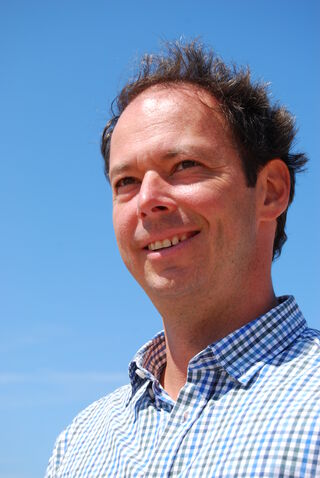Coronavirus Disease 2019
Insights on Resilience from the Czech COVID-19 Response
Dr. Radek Trnka on the Czech Republic's pandemic interventions.
Posted July 31, 2020 Reviewed by Kaja Perina

Worldwide, countries have been responding to COVID-19 in various ways. Here to reflect on the Czech Republic's efforts and response to coronavirus is Dr. Radek Trnka.
Dr. Radek Trnka is a senior researcher in the Science and Research Department at Prague College of Psychosocial Studies and Olomouc University Social Health Institute. He specializes in the research of emotions, creativity, and coping with stress. He has contributed to the establishment of a new, arising cross-disciplinary field called "quantum anthropology" that seeks interconnections between quantum theoretical thinking, contemporary psychology, and anthropology. He is the author of numerous papers and the book, Quantum Anthropology: Man, Cultures, and Groups in a Quantum Perspective (available for download without cost here).
Jamie Aten: How would you personally describe the COVID-19 situation in the Czech Republic?
Radek Trnka: Honestly, as a big natural and social experiment. Most people had to start behaving differently, thinking differently, and structuring their time differently. It was a great opportunity to try alternative systems in various sectors and industries. I would say that the initial phase of the outbreak was quite well-managed. The government, doctors, and all the people together reacted quickly, and this prevented an exponential growth in the number of infected people at the beginning. This was really good. I feel that COVID strengthened the collective self-esteem in Czech society. It is difficult to describe but it felt something like, "It was sudden, we were not prepared, but we still dealt with it."
JA: What are some ways understanding the Czech Republic's COVID-19 situation can help us live more resiliently?
RT: After the nationwide curfew ended, many people started to go to nature—forests, mountains, plains, rivers, and lakes. It looked like a reinvention of nature. As in other countries, a big portion of the Czech working population spent most of their working week in front of a computer screen, at meetings, and in offices before COVID-19. Maybe, some of them forgot that nature still exists. COVID-19 has gotten people back to nature to spend their time there by walking, running, or simply being. This experience can teach us one way to live more resiliently even after the COVID-19 pandemic—go outside and enjoy nature.
JA: What are some ways people can cultivate resilience amidst this pandemic?
RT: Aside from spending time in nature or with our families, any kind of mental hygiene can be of help. It depends on individual preferences. First, being active and participating in sports are the best way; second, practicing your hobbies or starting a new one; and third, try out chi kung meditation. It depends on each person’s preference. Let's experiment and find what works best for your body and mind.
JA: Any advice for how we might use what you have learned to support a friend or loved one struggling with a difficult life situation?
RT: Ordinary things often work best. There is no mystery. During this COVID-19 situation, many people are alone, with limited opportunities to share their concerns. This may lead to rumination and even subjective strengthening of their problems. Moreover, watching media messages about COVID-19 often deepens stress and anxiety. Taken together, good advice that we can provide to our friends or loved one when struggling is: "Talk to people, make and do things you like, but don't sit, don't watch TV and be on the Internet so much." Here I can only repeat what is generally well-known: Any kind of physical activity stimulates the circulation of body liquids, helps to excrete toxins from the body, improves wellbeing, and refocuses attention from difficulties to other aspects of life.
JA: What are you currently working on that you might like to share about?
RT: I am trying to explore how recent psychology and anthropology could be inspired by principles of quantum mechanics. Actually, some prejudice about this still persists in contemporary science due to several past attempts to join the ideas of quantum mechanics with esotericism. But I feel that now is the time to say: "O.K., there is a group of people who put quantum ideas to esoteric use, but that doesn't have to discredit all future attempts to apply quantum ideas in psychology!" I think there is a big potential for future science and a great deal of work ahead of us.
At the same time, our team works also on a broader project focused on emotional creativity. This is very exciting because emotional creativity belongs to one of the very little-explored areas of psychology. Almost whatever you find is new which is really great and this feeds my natural curiosity!
Follow Dr. Radek Trnka on Facebook and ResearchGate.
References
Trnka, R., & Lorencova, R. (2020). Fear, anger, and media-induced trauma during the outbreak of COVID-19 in the Czech Republic. Psychological Trauma: Theory, Research, Practice, and Policy, 12(5), 546-549.


